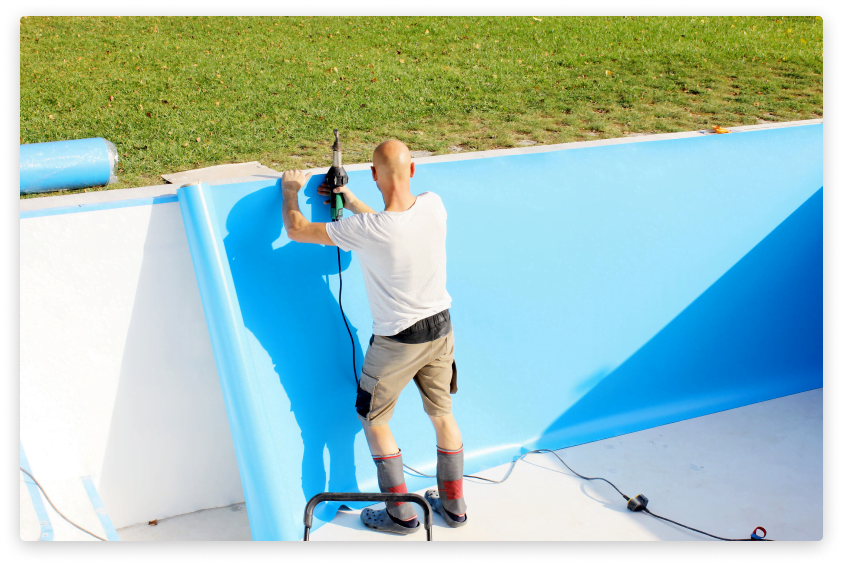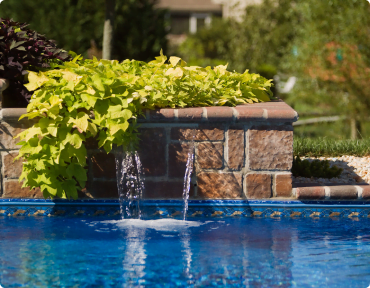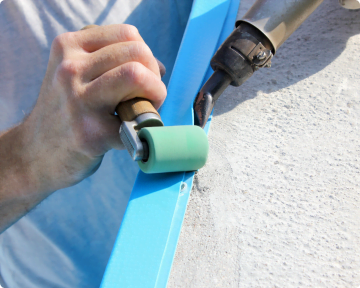Vinyl Pools
What is a vinyl pool
Vinyl or vinyl-liner pools are constructed by attaching a heavy-duty vinyl liner to an in-ground frame/structure, which may get constructed of plastic, steel, or reinforced concrete. The vinyl liner acts as a watertight barrier, preventing any leakage and providing a smooth, comfortable surface for swimmers. Vinyl pools offer a wide range of design possibilities, as the liner can come in different colors and patterns, allowing homeowners to customize the pool to their desired aesthetic.
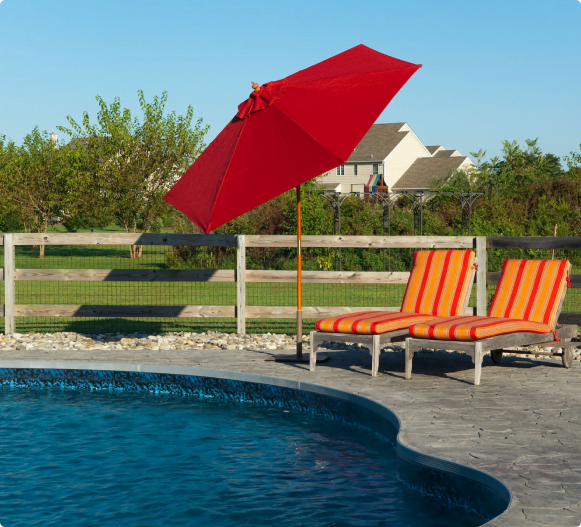
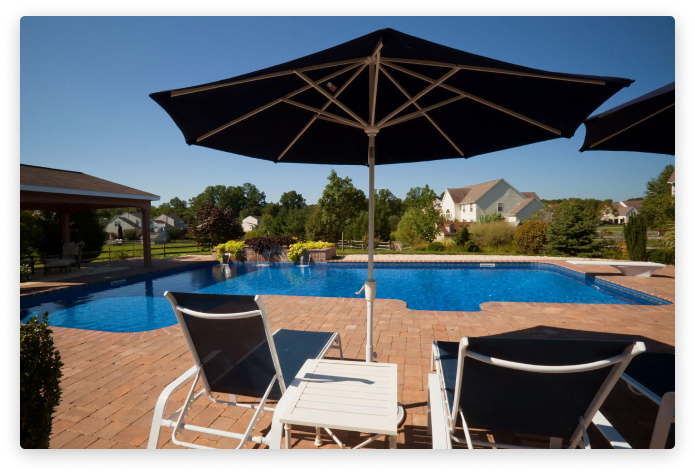
Pros Of a Vinyl Pool
There are many pros to installing a vinyl swimming pool. Traditionally they are the least expensive to install. Vinyl pools are constructed on site, which gives you more flexibility of design than a fiberglass pool. A liner pool installation will take less time than a concrete pool, but longer than a fiberglass pool. Vinyl liners come in many different shapes and colors. Vinyl will be soft to the touch and does not foster algae growth, as long as water chemistry is correct. Vinyl liner pools can be a great option as they are not susceptible to soil movement and cracking.
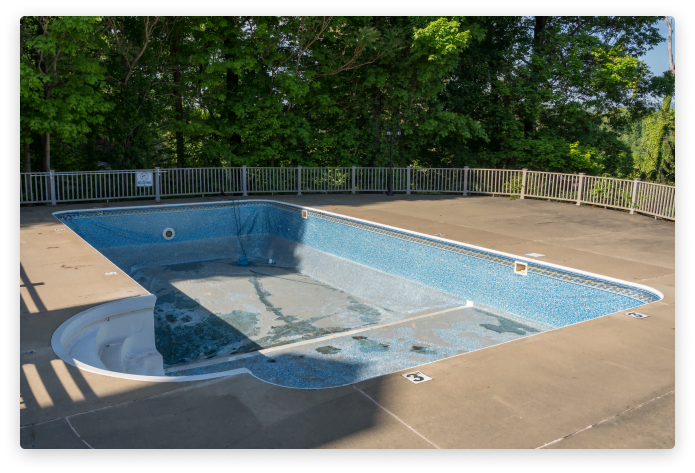
Cons Of a Vinyl Pool
The biggest downside to a vinyl pool is the fact that the vinyl can tear; resulting in costly repairs. Experts recommend spending more money on a heavy-duty liner to reduce the risk of tears. A vinyl pool is the least durable of all the options. If you have pets that love to swim, you need to rethink the vinyl option; as their claws will tear the liner. A liner tear typically results in a full liner replacement.
Although the initial investment is more favorable to the wallet; long-term costs of a vinyl pool will be higher. Liner replacements will occur every 7-12 years, and possibly sooner if you have pets that love the water. Liner pools can have a negative affect on your home’s resale value pending the age and condition of the liner.
A Vinyl Pool Is a Good Fit For:
Vinyl swimming pools are a great fit for people that are trying to swim on a budget. People often like this option as it has the lowest up-front cost, but buyer beware. With the friendly up-front costs comes the possibility of costly repairs down the road. These include:
- The liner is prone to tearing and leaking, so the liner might have to be replaced, which can be costly.
- High water tables can cause your liner to float.
- Could require additional work to create hydrostatic releases or installation of a pump system beneath the pool.
- The water chemistry still needs to be followed closely.
- The filter will have to circulate the water at least once per day.
- Some parts of the pool might not have the best circulation, which can lead to algae growth.
Budget
You have a budget of $45k–$75k.
Time In Home
You plan to move within 7-10 years; avoiding the first liner replacement.
Pool Size
Trying to get the most bang for your buck. You can purchase a larger pool with a smaller price tag compared to the other inground pool options.
Vinyl Pool Installation And Construction Process
Once you select the model and size of your vinyl pool, construction can begin. Once permits are approved, a dig date can be set and excavation is underway. The frame is then assembled, anchored and the floor substrate is installed. Once these steps are completed, the vinyl can be attached and the pool can be filled. Any inground pool is a significant investment; do your research and be sure to choose a quality contractor that will provide an installation that allow for years of enjoyment. If you are looking for the best vinyl pool experience, contact Evergreen today.
Contact Us!
BUILD YOUR DREAM VINYL POOL WITH EVERGREEN TODAY
Let Evergreen transform your backyard into a beautiful oasis by installing a vinyl liner pool today.


